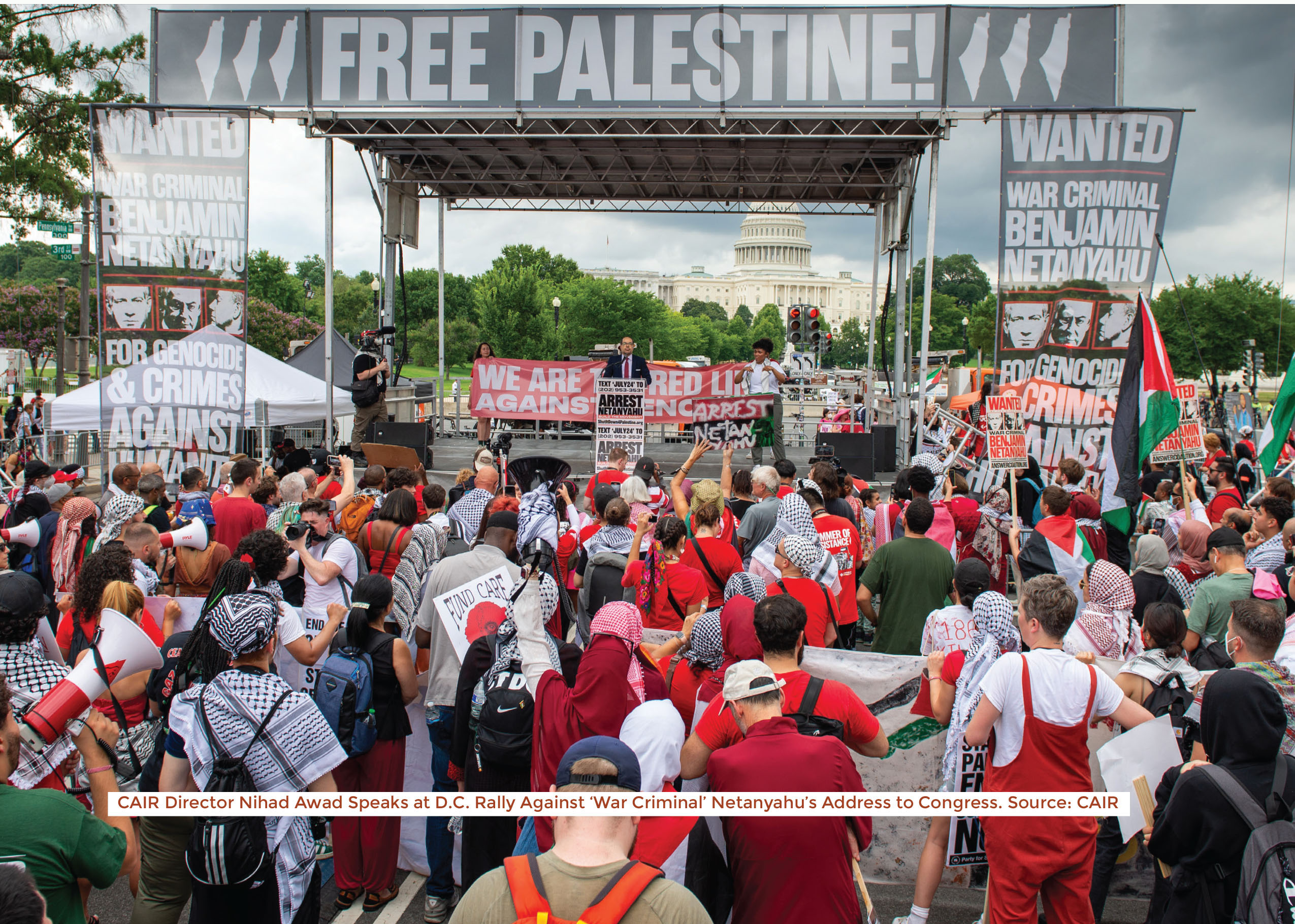
Harun Nasrullah
A powerful and coordinated campaign is exploiting a controversial definition of antisemitism to restrict free speech and silence criticism of Israel across multiple levels of the US government, according to a new report by the Council on American-Islamic Relations (CAIR) and its advocacy affiliate, CAIR Action.
The joint publication, released on September 29 under the title “Voices of Resistance Against the IHRA Definition and the Antisemitism Awareness Act,” warns that the International Holocaust Remembrance Alliance (IHRA) definition of antisemitism is being systematically misused across the US to suppress advocacy for Palestinian human rights and shield Israel from political accountability.
The IHRA definition, adopted in 2016, includes examples that critics say blur the line between genuine antisemitism and legitimate criticism of Israeli government policy — a conflation that human rights groups and constitutional scholars argue poses a direct threat to free expression.
According to CAIR’s report, the definition is being embedded into American law and policy at every level, from federal legislation to local ordinances, creating what the organisation describes as “a legal environment that chills constitutionally protected speech.”
CAIR and CAIR Action trace this trend across four levels of the US political system, beginning with federal legislation. In Congress, the Antisemitism Awareness Act (H.R. 1007 / S. 558) seeks to require the US Department of Education to apply the IHRA definition when investigating discrimination claims under Title VI of the Civil Rights Act of 1964.
Critics warn that this measure would compel the government to investigate students or professors for political speech critical of Israel, effectively transforming civil rights protections into tools of censorship. Although the Senate’s education committee postponed a vote on the bill after bipartisan concerns over free speech, it remains active in the House of Representatives.
The campaign extends to the executive branch, where the US administration has expanded the use of the IHRA definition beyond education, directing federal agencies to apply it in civil, criminal, and immigration enforcement.
This expansion builds upon Executive Order 13899, signed by former President Donald Trump in 2019, which first instructed federal departments to use the IHRA definition in civil rights cases. Civil liberties advocates warn that the broadened application risks targeting students, educators, and human rights activists for their political views on Israel and Palestine.
The framework is also gaining traction at the state level. Legislatures in New Jersey and Wisconsin have advanced IHRA-based bills, while in California, Governor Gavin Newsom is considering Assembly Bill 715, which civil rights groups argue could restrict open discussion about Israel and Palestine in classrooms.
At the municipal level, local governments have begun incorporating the definition into city policy. In New York City, the mayor recently issued Executive Order 52, formally embedding the IHRA definition into municipal operations. Similarly, Highland Park, Illinois, passed an ordinance adopting the definition, raising fears that restrictions on speech are being institutionalised at the community level.
CAIR officials argue that this wave of legislation and policy changes represents a distortion of civil rights law, turning measures designed to protect vulnerable communities into mechanisms for punishing political dissent. “From Congress to the White House, from Trenton to Sacramento, IHRA is being misused to police speech and punish dissent,” said CAIR Action Executive Director Basim Elkarra.
CAIR Government Affairs Director Robert S. McCaw echoed this concern, stating that these measures fail to confront genuine antisemitism while shielding Israel from accountability. He argued that they “weaponize civil rights law to silence Americans who advocate for Palestinian human rights.”
The factsheet also includes testimony from a diverse range of voices opposed to the IHRA framework. Kenneth Stern, the original drafter of the definition, condemned its weaponisation as “an attack on academic freedom and free speech.” Representative Jerrold Nadler, a senior Democratic congressman from New York, warned that codifying IHRA “threatens to chill constitutionally protected speech.”
Meanwhile, Jewish Voice for Peace stated that legislating the definition “secures impunity for decades of violating international law and trampling on Palestinian human rights.”
CAIR and CAIR Action say their goal in releasing the report is to equip educators, journalists, and policymakers with the tools to challenge what they describe as a systemic campaign to criminalise dissent and erode First Amendment protections in the United States.
Photo: Voices of Resistance Against the IHRA Definition and the Antisemitism Awareness Act Factsheet 2025